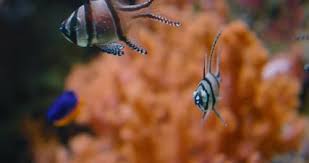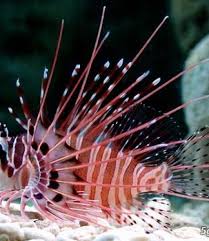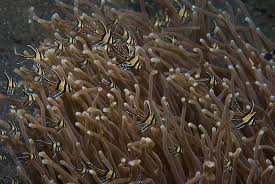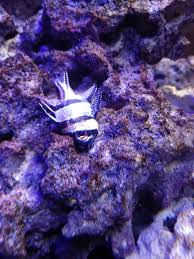
The Duanwu Festival, also known as the Dragon Boat Festival, is a vibrant celebration that occurs annually on the 5th day of the 5th month of the lunar calendar. This festival is steeped in tradition and history, known for its colorful dragon boat races, the commemoration of the ancient poet Qu Yuan, and the enjoyment of delicious, symbolic foods. One of the most important aspects of the Duanwu Festival is the food, which plays a central role in the celebrations. Among the most notable dishes prepared during this festival are zongzi (sticky rice dumplings) and various regional delicacies that have specific meanings tied to health, protection from evil spirits, and prosperity. In this article, we will explore the significance of the food eaten during Duanwu Festival and provide recipes and tips on how to prepare them.
1. The Cultural Significance of Duanwu Festival Foods
The Duanwu Festival has a long history dating back over two thousand years, originating from the ancient Chinese practice of honoring the spirit of Qu Yuan, a patriotic poet and statesman. The festival was initially held to prevent the rivers from becoming polluted by Qu Yuan’s death and to protect the people from the evil spirits believed to roam freely during this time. Over time, the Duanwu Festival transformed into a joyful occasion marked by feasts, outdoor activities, and family gatherings.
Food plays a symbolic role in the Duanwu Festival. Dishes are often consumed not only for their delicious flavors but also for their meanings. For example, the act of making and eating zongzi, the sticky rice dumplings wrapped in bamboo leaves, is believed to symbolize protection from evil spirits and to ensure the well-being of family members. These foods are also associated with the agricultural cycle, fertility, and the wellness of the community.
2. Zongzi: The Iconic Sticky Rice Dumplings
Among the most iconic foods associated with the Duanwu Festival is zongzi. Zongzi is a traditional dish consisting of sticky rice, often filled with meat, beans, or nuts, wrapped in bamboo or reed leaves, and then steamed or boiled. Zongzi has a long history, and its origins are believed to be linked to the legend of Qu Yuan, who drowned himself in the Miluo River in 278 BC. The local people, in their desperation to save him, threw rice into the river to feed his spirit and protect his body from being eaten by fish. The tradition of making zongzi is said to have originated from this act.
How to Make Zongzi:
Making zongzi is an intricate process, but with the right ingredients and some practice, it is a rewarding and symbolic dish for the Duanwu Festival. Here’s a basic recipe to prepare zongzi:
Ingredients:
- Sticky rice (soaked for at least 6 hours or overnight)
- Pork belly (or chicken, salted duck egg, red beans, or mung beans)
- Dried shiitake mushrooms
- Chinese sausages (optional)
- Bamboo leaves (or reed leaves, soaked in hot water for softening)
- Soy sauce
- Five-spice powder
- Salt and sugar
- Hoisin sauce (optional)
- Cooking twine
Instructions:
- Prepare the filling:
- Cut the pork belly into small pieces, marinate with soy sauce, five-spice powder, sugar, and hoisin sauce (optional), and let it sit for an hour.
- Soak the dried shiitake mushrooms in warm water until soft, then slice thinly.
- Slice the Chinese sausages into thin rounds (if using).
- Prepare the rice:
- Rinse the soaked sticky rice well. Drain it and then season with a pinch of salt and a dash of soy sauce.
- Prepare the bamboo leaves:
- Carefully clean the bamboo leaves and soften them by soaking them in hot water for 30 minutes.
- Assemble the zongzi:
- Fold a bamboo leaf into a cone shape, adding a spoonful of rice as the base. Add a few pieces of pork, mushrooms, and sausage on top of the rice. Then, add more rice on top to seal the filling.
- Carefully fold the bamboo leaves over the rice to form a tight parcel, and tie it securely with cooking twine.
- Cook the zongzi:
- Place the zongzi in a large pot of boiling water. Boil for about 3–4 hours, or until the rice is fully cooked and the flavors have melded together.
- Serve and enjoy:
- Once cooked, allow the zongzi to cool slightly before unwrapping the bamboo leaves. The zongzi can be served hot or cold, and it’s often eaten with pickled vegetables or accompanied by a cup of Chinese tea.
3. Other Essential Duanwu Festival Dishes
While zongzi is the main dish during the Duanwu Festival, there are other traditional foods that are enjoyed for their symbolic meanings and their contributions to the festival feast. These foods vary by region, but many are tied to ideas of good fortune, health, and protection from evil.
Realgar Wine (雄黄酒 – Xiónghuáng jiǔ)
A traditional drink often consumed during the Duanwu Festival is realgar wine. This alcoholic beverage is made by infusing realgar, a mineral known for its medicinal properties, in wine. It is believed that drinking realgar wine helps to ward off evil spirits and purify the body, ensuring a healthy and prosperous year. The drink is often consumed in small quantities, and some families still practice the custom of drinking it during the festival.
Five-Spice Stewed Eggs (五香卤蛋 – Wǔxiāng lǔ dàn)
Another popular dish enjoyed during the Duanwu Festival is five-spice stewed eggs. These hard-boiled eggs are marinated in a mixture of soy sauce, five-spice powder, and other aromatics, then slowly simmered to absorb the flavors. The five-spice powder used in this dish symbolizes the balance of the five elements (wood, fire, earth, metal, and water) and is thought to bring harmony and good luck. These eggs are commonly served as snacks during the festival, especially for children.
Ginger Tea (姜茶 – Jiāng chá)
A traditional beverage to enjoy during the Duanwu Festival is ginger tea, a warming and aromatic drink made with fresh ginger, sugar, and sometimes a little brown sugar or rice wine. This tea is thought to promote good digestion, alleviate cold symptoms, and keep the body warm during the hot summer months. Ginger tea is often consumed in the early morning hours, as it is believed to help stimulate the metabolism and refresh the body after a long night of celebration.
4. Regional Variations of Duanwu Festival Foods
While the food associated with the Duanwu Festival shares many common elements, regional variations abound, reflecting the diversity of Chinese cuisine. In some areas, people may prepare their own regional versions of zongzi or offer different fillings, such as sweet versions made with lotus seeds or bean paste.
In the South of China, especially in areas like Guangzhou, people may enjoy sweet zongzi filled with ingredients like lotus seed paste or red bean paste. The Southern version of zongzi is often sweeter than the savory versions found in the North.
In Eastern China, particularly in Shanghai, people enjoy rice cakes (年糕 – Niángāo), which symbolize progress and prosperity. These rice cakes are often stir-fried with savory ingredients like pork, vegetables, or shrimp.
In Taiwan, apart from the typical zongzi, people celebrate with pineapple cakes and other small snacks that carry meanings of good fortune and wealth.
5. Conclusion: The Spirit of Duanwu Festival
The Duanwu Festival is a time of celebration, remembrance, and hope for a prosperous year ahead. Through the food we prepare and enjoy, we connect with ancient traditions, honor ancestors, and share in the joy of family and community. From the rich, savory zongzi to the warming ginger tea, every dish served during this festival is infused with cultural significance and symbolic meaning.
By understanding the recipes and the deep cultural ties to these foods, we gain a greater appreciation for this unique holiday and the richness of Chinese culinary traditions. Whether you’re preparing zongzi with your family or simply enjoying the festival’s delicacies, the flavors of the Duanwu Festival offer a delicious reminder of the importance of tradition, family, and the celebration of life.
Happy Duanwu Festival!









